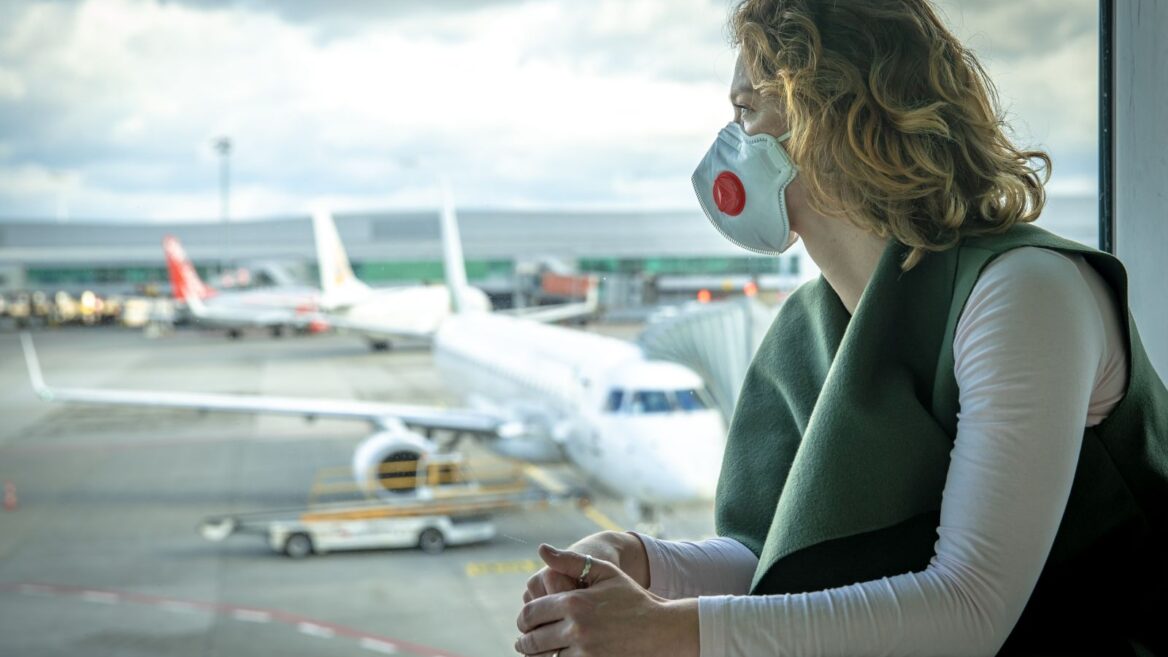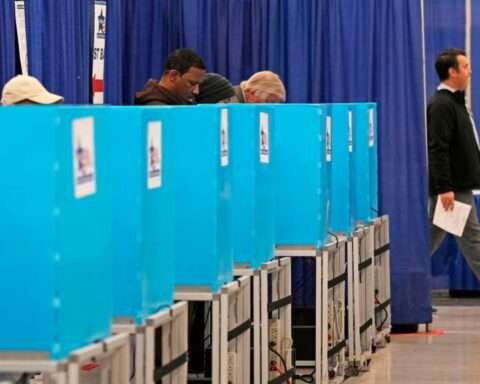On January 12, 2021, CDC announced an Order requiring all air passengers arriving to the US from a foreign country to get tested no more than 3 days before their flight departs and to present the negative result or documentation of having recovered from COVID-19 to the airline before boarding the flight. Air passengers will also be required to confirm that the information they present is true in the form of an attestation. This Order is effective as of 12:01am EST (5:01am GMT) on January 26, 2021.
Frequently Asked Questions
General
Does this requirement apply to US citizens?
This Order applies to all air passengers, 2 years of age or older, traveling into the US, including US citizens and legal permanent residents.Are foreign nationals no longer subject to Presidential Proclamation travel restrictions if they can show a negative test or documentation of recovery?
The CDC order does not replace the Presidential proclamations. Therefore, a negative test result for COVID-19 or documentation of having recovered from COVID-19 to the airline before boarding the flight does not exempt a foreign national from the travel restrictions outlined in the Presidential proclamations.
With specific exceptions, several Presidential proclamations suspend and limit entry into the United States, as immigrants or nonimmigrants, all aliens who were physically present within specific countries during the 14-day period preceding their entry or attempted entry into the United States.
For a full list of countries and links to the proclamations on the White House website, visit Travelers Prohibited from Entry to the United States.Are territories or possessions of the US considered foreign countries for the purposes of this Order?
No, the Order to present a documentation of a negative COVID-19 test or recovery from COVID-19 does not apply to air passengers flying from a US territory or possession to a US state.
US territories and possessions of the US include American Samoa, Guam, the Northern Mariana Islands, the Commonwealth of Puerto Rico, and the US Virgin Islands.When does this order take effect?
This Order will go into effect on January 26, 2021.What is an attestation?
An attestation is a statement, writing, entry, or other representation under 18 U.S.C. § 1001 that confirms that the information provided is true.Does this Order apply to land border crossings?
No, the requirements of this Order only apply to air travel into the US.Who is checking to make sure that people have a negative test or documentation of recovery before they board a plane to the US?
The airline will confirm a COVID-19 negative test result or documentation of recovery for all passengers before boarding.Will CDC provide information about international testing locations?
CDC is unable to provide information about locations and availability of testing in other countries. Check COVID-19 Country Specific Informationexternal icon for information on how and where to get tested in the country from which you are traveling or contact local authorities in that country.Does an at home test qualify?
The Order requires a lab report to be presented to the airline or to public health officials upon request. A home specimen collection kit that is tested in a laboratory should meet the requirements, if such methods have been approved by the country’s national health authorities.What is a verifiable test result?
A verifiable test result must be in the form of written documentation (paper or electronic copy) of a laboratory test result. Testing must be performed using a viral test (NAAT or antigen), and negative results must be presented to the airline prior to boarding. The test result documentation must include information that identifies the person, a specimen collection date and the type of test. A negative test result must show test was done within the 3 days before the flight. A positive test result must show the test was done within the 3 months before the flight.
Passengers
What if I have had a COVID-19 vaccine or have tested positive for antibodies? Do I still need a negative COVID-19 test or documentation of recovery from COVID-19?
Yes, at this time all air passengers traveling to the US, regardless of vaccination or antibody status, are required to provide a negative COVID-19 test result or documentation of recovery.When do I need to get a test to travel to the US and what kind of test do I need?
Get tested no more than 3 days before your flight to the US departs. Make sure to be tested with a viral test (NAAT or antigen test) to determine if you are currently infected with COVID-19. Also make sure that you receive your results before your flight departs and have documentation of your results to show the airline.Do state and local governments in the US have separate testing requirements for air passengers?
Federal testing requirements must be met to board a plane to the US. Some state and local governments may have similar or more restrictive testing requirements for air passengers arriving in their jurisdictions. Always check and follow state and local recommendations or requirements related to travel in addition to federal requirements.Do I still need a test if my trip is shorter than 3 days?
Yes, you will still need a test if your trip is shorter than 3 days. A viral test done in the US can be used to fulfill the requirements of the Order as long as the specimen was taken no more than 3 days before your return flight departs.
If your return travel is delayed longer than 3 days after your test, you will need to be retested before your return flight.What if I recently recovered from COVID-19?
CDC does not recommend getting tested again in the three months after a positive viral test, as long as you do not have symptoms of COVID-19. If you have had a positive viral test in the past 3 months, and you have met the criteria to end isolation, you may travel instead with documentation of your positive viral test results and a letter from your healthcare provider or a public health official that states you have been cleared for travel. The positive test result and letter together are referred to as “documentation of recovery.”
A letter from your healthcare provider or a public health official that clears you to end isolation, e.g., to return to work or school, can be used to show you are cleared to travel, even if travel isn’t specifically mentioned in the letter.What happens if I don’t take a test and want to travel to the US?
Air passengers traveling to the US are required to present a negative COVID-19 test result or documentation of recovery. Airlines must confirm the negative test result or documentation of recovery for all passengers before boarding. If a passenger chooses not to present a test result or documentation of recovery, the airline must deny boarding to the passenger.What if I am overseas and can’t get tested before my flight?
Passengers should contact the airline regarding options for changing their departure date to allow time for a test, see if the airline has identified options for testing, or if there are options available for changing their flights to transit through a location where they can get tested before boarding their final flight to the United States.What happens if I test positive?
People should self-isolate and delay their travel if symptoms develop or a pre-departure test result is positive until they have recovered from COVID-19. Airlines must refuse to board anyone who does not present a negative test result for COVID-19 or documentation of recovery.What kind of documentation of my test result do I need to present?
CDC requires that air passengers arriving in the US have a paper or electronic copy of their test result for review by the airline before you board and for potential review by public health officials after you arrive in the US.Can I get an exemption or waiver to the testing requirement?
Exemptions may be granted on an extremely limited basis when emergency travel (like an emergency medical evacuation) must occur to preserve someone’s life, health against a serious danger, or physical safety and testing cannot be completed before travel.Do passengers also need to have a copy of their attestation as well as the airline retaining it?
Passengers are only required to retain a paper or electronic copy of their negative test result or documentation of recovery for the entirety of their itinerary. The attestation should be submitted to and retained by the airline or aircraft operator.What happens if my flight is delayed and it goes over the 3-day limit for testing?
If your flight is delayed before departure, you will need to get re-tested if the delay causes your test to fall outside of the 3-day pre-departure testing period requirement.If I am connecting through the US to another country, do I still need to get tested?
Yes. Any flight entering the US, even for a connection, will require testing before departure.If I have one or more connecting flights to the US, does the 3-day period apply to the first flight or the last one?
If you are arriving on a direct flight to the US, your test must be done within the 3 days before your flight to the US departs. If you are arriving to the US via one or more connecting flights, your test must be done in the 3 days before the first flight in your itinerary, but only if the connecting flights were booked as a single passenger record with a final destination in the US and each connection (layover) is no longer than 24 hours long. If your connecting flight to the US was booked separately or a connection in your itinerary lasts longer than 24 hours, you will need to get tested within the 3 days before your flight that arrives in the US.If I tested negative before my flight, do I need to get another test when I get to the US?
CDC recommends that travelers get tested 3-5 days after travel AND stay home or otherwise self-quarantine for 7 days after travel. Even if you test negative, stay home for the full 7 days. If you don’t get tested, it’s safest to stay home for 10 days. Always follow state and local recommendations or requirements related to travel.
All travelers (including those who have recovered from COVID-19) should remember to wear a mask, stay at least 6 feet apart from people who are not in your household, and wash their hands often with soap and water for at least 20 seconds after blowing their nose, coughing, or sneezing and before eating. Travelers should look for symptoms of COVID-19, and take your temperature if you feel sick. Anyone sick with symptoms of COVID-19 should self-isolate and delay further travel.
Do I need to get a test before leaving the US?
At this time, CDC does not have a testing requirement for outbound travelers, but recommends that you get tested with a viral test (NAAT or antigen) 1-3 days before you travel internationally. Travelers should check with international destinations for their entry requirements.What is the justification for letting people who recently recovered from COVID-19 travel without a negative test? What about reinfections?
People who have recovered from COVID-19 can continue to test positive for up to 3 months after their infection. CDC does not recommended retesting within 3 months after a person with COVID-19 first developed symptoms (or the date of their first positive viral diagnostic test if their infection was asymptomatic). Even if they have recovered from COVID-19, people who develop symptoms of COVID-19 should not travel and should seek care for testing and evaluation. This guidance may be updated as additional information about people who have recovered from COVID-19 becomes available.Can CDC help me get a refund for travel expenses if I have to cancel or delay travel because of testing requirements for air passengers flying to the US?
CDC does not reimburse and is unable to help travelers get reimbursements for travel expenses as a result of canceled or delayed travel because of COVID-19 or testing requirements for air passengers flying to the US. While some companies may base their policies on CDC’s travel recommendations or requirements, each company establishes its own refund policies.
In some cases, trip cancellation insurance can protect your financial investment in a trip if you need to change your itinerary in the event of an international outbreak. Visit CDC’s Travelers’ Health website if you would like to learn more about travel insurance, including trip cancellation insurance.Will CDC reimburse me for the cost of a COVID-19 test?
CDC is not able to reimburse travelers for COVID-19 testing fees. You may wish to contact your insurance provider or the location that provided your test about payment options.
Aircraft Operators/Airlines/Crew FAQ
Does this order apply to all flights or just commercial flights?
This order applies to all flights, including private flights and general aviation aircraft (charter flights). Passengers traveling by air into the US are required to have proof of testing regardless of flight type.Does the Order apply at pre-clearance ports?
Yes, the Order applies to all air passengers arriving from foreign countries.What types of crew are exempt from the requirements of the Order? What types of travel by crew are exempt from the requirements of the Order?
Crew members on official duty assigned by the air carrier or operator that involves operation of aircraft, or the positioning of crew not operating the aircraft (i.e., on “deadhead” status), are exempt from the requirements of the Order provided their assignment is under an air carrier’s or operator’s occupational health and safety program. For the exemption to apply, the occupational health and safety program must follow industry standard protocols for the prevention of COVID-19 as set forth in relevant Safety Alerts for Operators (SAFOs)issued jointly by the Federal Aviation Administration (FAA) and CDC. Other persons, such as maintenance personnel or contractors, may also be exempted if:
- Their travel is for the purpose of operating the aircraft or ensuring the safety of flight operations; AND
- The air carrier extends its occupational health and safety program to cover these individuals and ensures these persons follow the protocols contained in SAFO and CDC guidance; AND
- The travel cannot be planned with sufficient time to enable the employee to take a COVID-19 test and obtain the results before the operational travel.
Air carriers or operators who assign their crew to travel in an official duty status (i.e., position or deadhead) on another air carrier should coordinate with that air carrier regarding their crew member’s eligibility for an exemption from testing. The air carrier should provide the crew member with any required documentation in addition to the crew member’s identification.
Crew members traveling for training, commuting to or from work, or for business reasons not associated with the operation of the aircraft are not exempt from the testing requirement. Nor are crew traveling for personal reasons, such as leisure travel.
Operators of aircraft that are not operating under an air carrier’s or operator’s occupational health and safety program as described above are not exempt from the requirements of the Order.Where can airlines find the industry protocols that crew must follow to qualify for the exemption?
At this time, the attestation form is not available in other languages. Airlines and aircraft operators may use a third party to provide translations of the attestation. However, the airline or aircraft operator is responsible for ensuring the accuracy of any translation. The airline or aircraft operator may not shift this responsibility to a third party.The attestation may be difficult for our passengers to understand. Can the US Government or airlines provide a simpler version?
At this time, there is no alternative form of attestation. Airlines and aircraft operators must use the current attestation without alternation.What should airlines and operators of private flights or general aviation aircraft do with passenger attestations?
Operators of private flights and general aviation aircraft must maintain passenger attestations for two years, per the Order.Do airlines and operators of private flights or general aviation aircraft need to keep copies of passenger test results?
No, passengers must show a copy of their test results to airline employees or the aircraft operator before boarding, but the airline or aircraft operator does not need to retain copies of test results.






